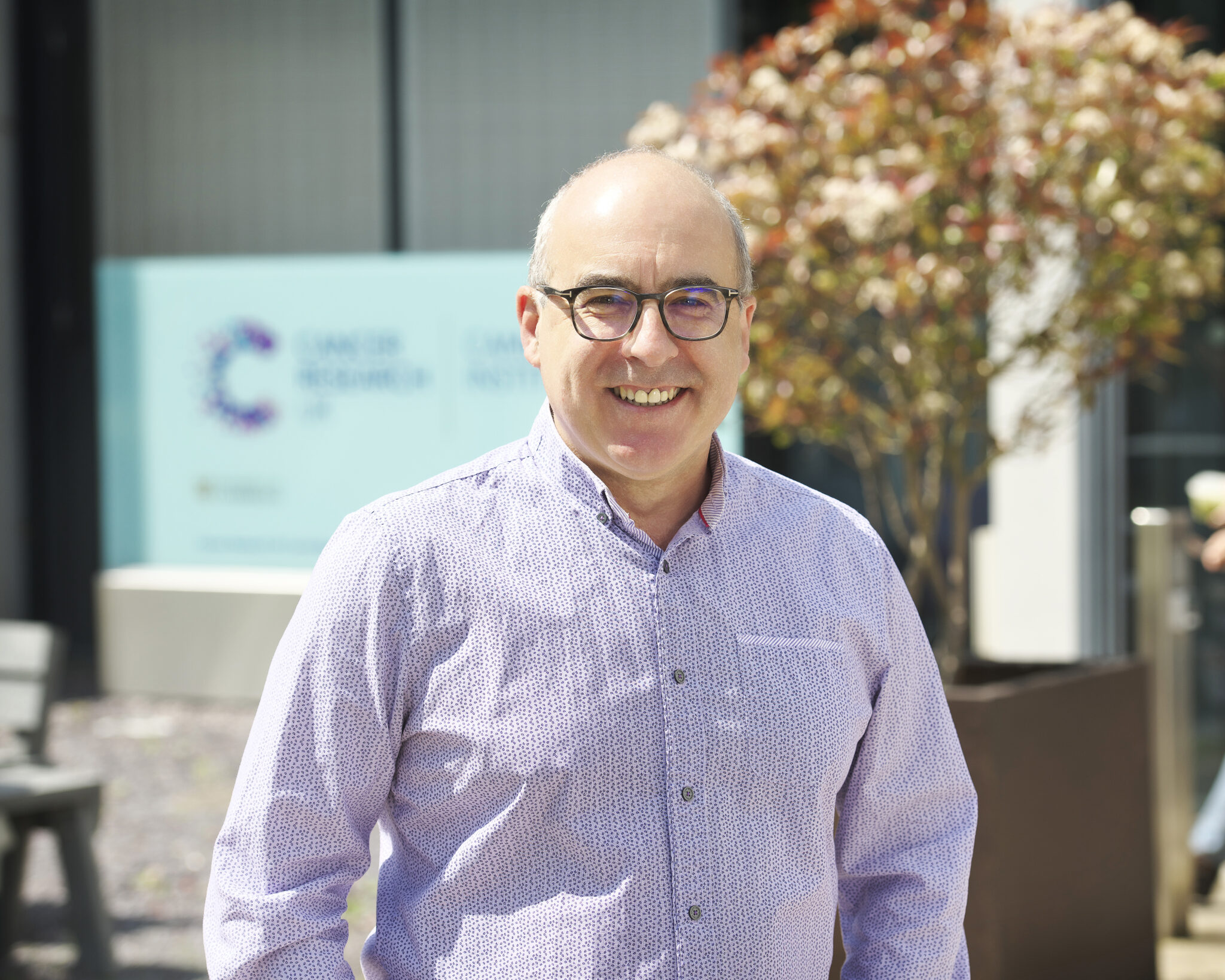
Steve Jackson, who is also a member of our Cell and Molecular Biology Programme, was recommended for the honour of Knight Bachelor for his services to innovation and research.
This news follows shortly after olaparib (Lynparza), a world-first targeted cancer drug developed by Steven and his colleagues, was approved for hundreds of NHS patients in England. In total, the world-first therapy olaparib has benefited over 60,000 cancer patients to date.
For more than 25 years, Steve’s research group has focused on DNA repair and DNA-damage signalling. He was appointed the Frederick James Quick Professor of Biology at the University of Cambridge in 1995, early into a 31-year term at the University’s Gurdon Institute. In September 2022, he moved his laboratory to the Cancer Research UK Cambridge Institute, where he now holds the position of Senior Group Leader.
He explains: “It’s my firm belief that good fundamental science in the right environment, with the right people, can identify exciting medical opportunities.”
Indeed, his work has established many of the key principles by which cells respond to and repair DNA damage. This includes identifying many DNA-damage-response (DDR) proteins, establishing how they function, as well as how – in many cases – they are strongly evolutionarily conserved, and helping to define how their dysfunction yields cancer and other diseases.
In turn, these fundamental findings have been translated into innovation; Jackson has created three spin-out companies focused on the therapeutic opportunities arising from his research: KuDOS Pharmaceuticals, Mission Therapeutics and Adrestia Therapeutics.
The first, KuDOS, was founded in 1997 (and acquired by AstraZeneca in 2006) to develop Jackson’s observation that many DDR proteins represent attractive drug targets. Of the compounds KuDOS has brought forward, olaparib is the most advanced and has established a new cancer therapy paradigm, wherein a cancer cell’s genetic deficiency (such as the loss of BRCA1 or BRCA2 function) is exploited pharmacologically using a process called synthetic-lethality. This enables cancer cell killing with minimal impact to a patient’s normal cells.
Olaparib, the first anti-cancer medicine targeted to patients based on them having an inherited predisposition, has now been approved for the treatment of ovarian, breast, prostate and pancreatic cancers.
Mission Therapeutics, co-founded in 2010, pursues new therapeutic opportunities arising from Jackson’s work on protein ubiquitylation and deubiquitylation. These are the processes by which ubiquitin, a small protein that occurs in all tissues, is attached or detached from another targeted protein. Since 2018, Adrestia Therapeutics has investigated potential drug targets for inherited rare diseases based on the concept of synthetic viability, a process by which a lethal or disease phenotype is “rescued”.
In addition to his research leadership, Jackson also takes seriously his responsibilities as a mentor to early career researchers. Nearly a year since he arrived at Cancer Research UK Cambridge Institute, the Jackson Group has over 20 members. Group alumni include 27 academic group or senior group leaders and 15 hold senior positions in biotechnological or pharmacological organisations.
Reflecting on his career so far, Jackson states: “I’m absolutely thrilled and still pinching myself about the knighthood, but most of all I feel very lucky to be a molecular and cell biologist funded well to do cool science.
“And knowing what we’re doing is potentially relevant to improving people’s health in future makes being a cancer researcher even more exciting.”















